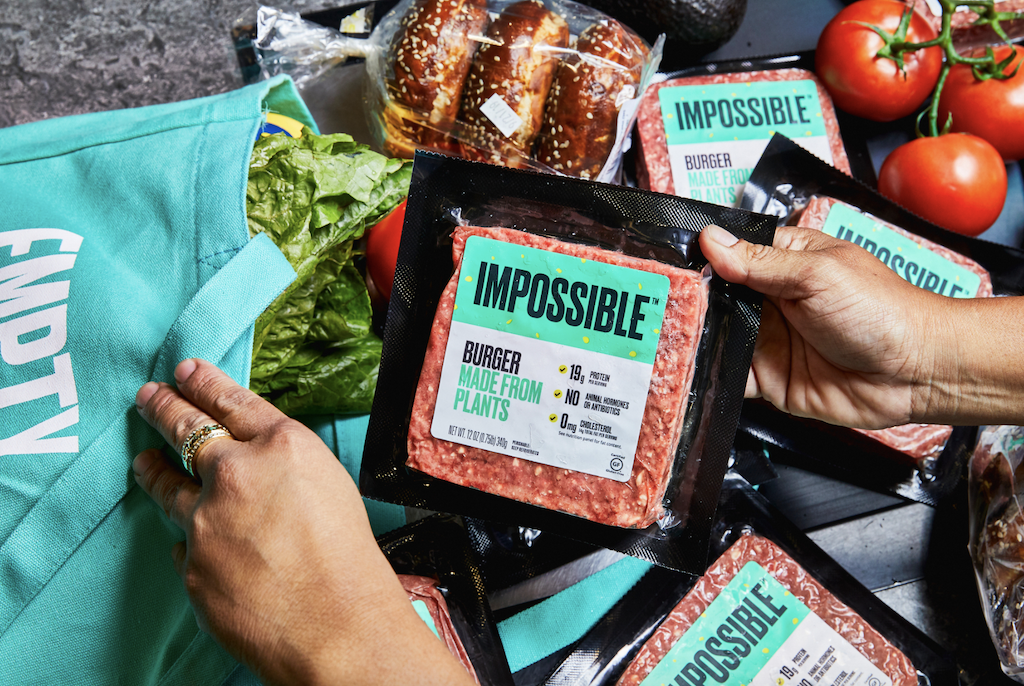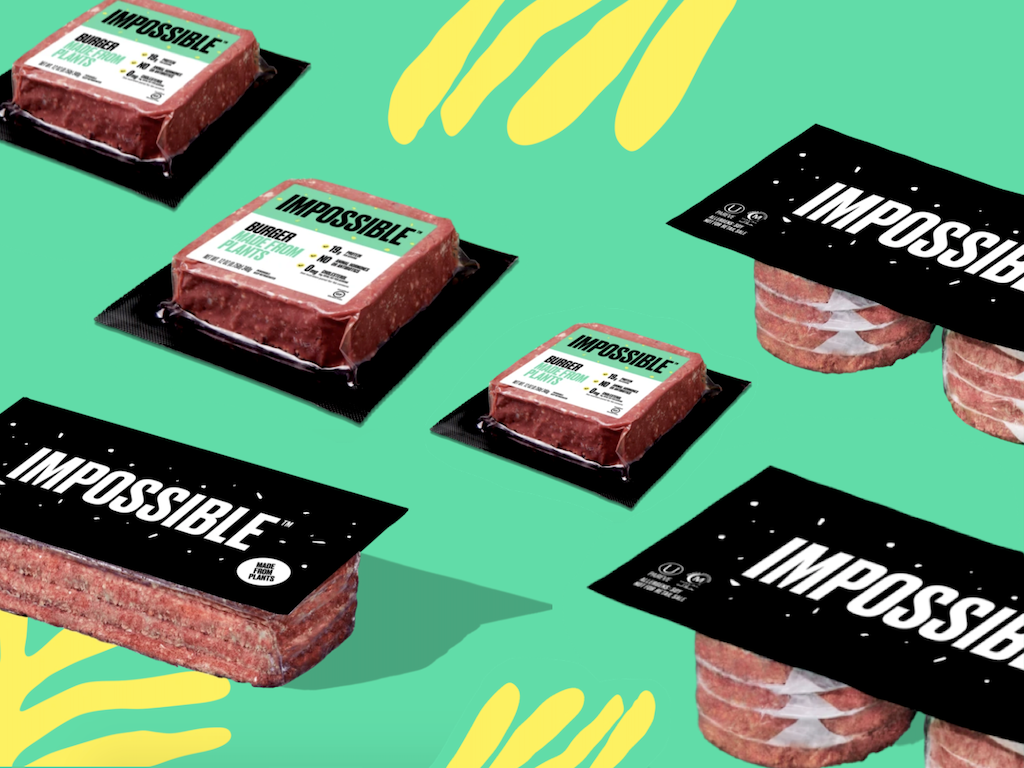3 Mins Read
Impossible Foods has launched a new direct-to-consumer e-commerce service for its plant-based burger patties and ground beef products. Currently available for consumers in the United States, the move comes at a time when foodservice is shifting online and supermarket retail as a result of the coronavirus. The past few months has seen plant-based sales skyrocket as consumer concerns about food safety, health and sustainability loom large.
Silicon Valley food tech Impossible Foods has just launched its new direct-to-consumer online website, where consumers in the United States are able to purchase its famous “bleeding” plant-based burger patty and beef mince analogue and have it delivered to their doors.
There are four product packages on offer on the site – all bulk-sized and therefore appears to cater to existing customers and fans. These include the Convenience Pack (US$49.99) containing four 12-ounce beef mince packages, the Combo Pack (US$59.99) with two 12-ounce beef mince packages and 10 quarter-pound Impossible Burger patties, the five-pound Impossible Beef Family Pack (US$64.99), and the Grilling Pack (US$69.99) with 20 quarter-pound patties.
Impossible Foods first started out in the foodservice sector and quickly became a hit, rolling out in thousands of restaurants across the United States, Hong Kong, Singapore and Macau. They have since expanded into the retail space in the United States with 3,000 supermarkets stocking its products.

Impossible Foods’ main rival – Beyond Meat – has been retailing its products directly to consumers for years, with two 4-oz patties going for US$5.99 in stateside supermarkets. As of March this year, Beyond Meat products are sold in 94,000 locations worldwide, most notably in Whole Foods, Tesco, Safeway, Green Common, Amazon Fresh and Albert Heijn. Its retail sales have skyrocketed amidst the pandemic, with the food tech’s latest earnings report showcasing a 157% year-on-year jump in retail sales.
The move for the initially foodservice-focused Impossible Foods to expand into retail sales therefore presents a significant beefing up in competition between the two Silicon Valley food tech giants. Entering into online sales is a part of Impossible Foods’ overall aggressive strategy to grow its retail footprint by more than 50-fold within the year, and comes at a relevant time when the coronavirus is keeping consumers cooking at home.
To that end, the famous food tech has also revealed that it will be launching a new plant-based Impossible Cookbook containing recipes from renowned chefs including Traci Des Jardins and Brad Farmerie who have used Impossible’s meat analogues.
Recently, the company also decided to allow Singapore foodservice partners to resell their Impossible meat stock amidst the coronavirus lockdown, but it is understood that the scheme will only be temporary.

Consumers have been quick to jump on the plant-based trend as food safety, health and sustainability becomes an increasing concern during the pandemic. Sales in the sector have jumped dramatically in the height of the pandemic in the United States, with Nielsen recording a 280% growth in vegan meat sales in March.
Amidst slaughterhouse viral outbreaks and empty supplies of beef and pork in supermarkets, investors have also turned their attention to plant-based startups, with funding going into the industry exploding in the first quarter of this year.
There is little doubt that there will be more significant announcements to come from Impossible Foods as plant-based continues to grow. In March this year, the company raised a whopping US$500 million Series F funding round, a portion of which will be used to slash prices by 15% and reach price parity with conventional ground beef.
Want more news on Impossible Foods? Read our earlier coverage here & check out more plant-based stories here.
All images courtesy of Impossible Foods.




